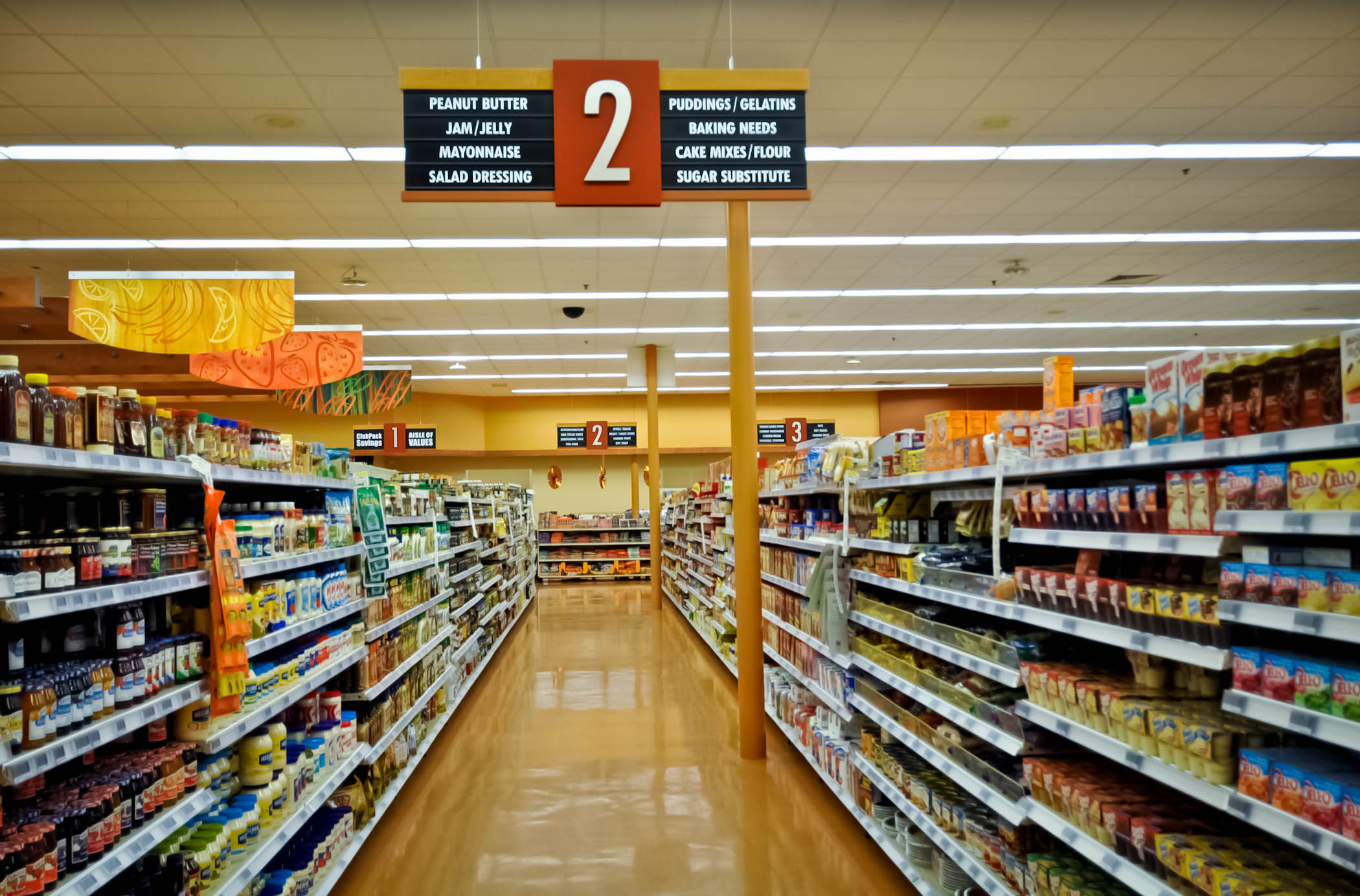 A friend of mine recently asked why we can only shop for groceries, not for a single grocery. She was inspired to ask this question by her three-year-old son, who had remarked, when she came out of a store bearing a single loaf of bread, that she had bought "a grocery". Children are so logical when they are learning language: they acquire a pattern, and apply it. Just wait till the poor kid learns he has to change the singular -y to an -ies for the plural, and that even though your shopping list has several groceries on it and the No Frills sells many groceries, we still speak of a "grocery" list and a "grocery" store. Sigh, English is so illogical.
A friend of mine recently asked why we can only shop for groceries, not for a single grocery. She was inspired to ask this question by her three-year-old son, who had remarked, when she came out of a store bearing a single loaf of bread, that she had bought "a grocery". Children are so logical when they are learning language: they acquire a pattern, and apply it. Just wait till the poor kid learns he has to change the singular -y to an -ies for the plural, and that even though your shopping list has several groceries on it and the No Frills sells many groceries, we still speak of a "grocery" list and a "grocery" store. Sigh, English is so illogical.For that matter, why do we even call food and household supplies "groceries"?
It's interesting to see what other languages literally call their weekly visit to the supermarket:
French: épicerie (spices)
Dutch: krudenierswaren (herb/spice seller's wares)
Spanish: comestibles (edibles)
Italian: generi alimentari (food types)
German: Lebensmittel (means of life)
and for the Danes, apparently, a weekly shop is not enough, because they buy
daglig varer (daily goods)
But we English speakers like to buy in bulk, it would seem, for this is the origin of the word "grocery", which ultimately derives from the French word gros (big) and the Latin word grossus (thick). Here are the Oxford English Dictionary's definitions for "grocer":
One who buys and sells in the gross, i.e. in large quantities, a wholesale dealer or merchant [in contrast to a retailer, for which see this post]; also with mention of the article dealt in, e.g. fish. (The company of Grocers, said to have been incorporated in 1344, consisted of wholesale dealers in spices and foreign produce),
thus...
A trader who deals in spices [you see now where the French and Dutch got their word from], dried fruits, sugar,
and, in general, all articles of domestic consumption except those that
are considered the distinctive wares of some other class of tradesmen. In
18–19th c. tea, coffee, and cocoa became characteristic articles of the
grocer's trade. After 1860 many grocers held licences to sell beer,
wines, and spirits, in bottles.
"Grocery" was originally a collective noun for all such wares (as épicerie still is in French):
1660 F. Brooke tr. V. Le Blanc World Surveyed 47
Confections, and preserves, of all sorts, spices, and all sorts of grocery come from China.
But because (unlike my single-loaf-buying friend) one usually buys more than one such item at a time, the plural "groceries" also started to be used, and finally won out.
The shop where you buy your "means of life" started to be called a "grocery (store)" in the early 19th century in North America, and this usage is still more common here than in the UK, where they are more likely to say "(green)grocer's". Beware, though, if reading older texts from the southern US, that "grocery" often meant "liquor store"!
Another interesting point about these words is the pronunciation. Some people in North America (including my friend who initiated this post) say "grow-sher(ee)" rather than "grow-sser(ee)". This is a natural phonetic phenomenon caused by the proximity of the "r" to the "s". I was quite surprised to hear it when I first moved to Ontario, but we did a survey for the Canadian Oxford Dictionary and found it was quite common. Our dictionary and some American dictionaries include it. What do you say?
Upcoming History of the English Language course (please tell your friends):
http://katherinebarber.blogspot.ca/2015/03/rollicking-story-of-english-language.html
http://katherinebarber.blogspot.ca/2015/03/rollicking-story-of-english-language.html
P.S.
If you find the English language fascinating, you might enjoy regular
updates about English usage and word origins from Wordlady. Receive
every new post delivered right to your inbox! You can either:
use
the subscribe window at the top of this page
OR
(if
you are reading this on a mobile device): send me an email with the
subject line SUBSCRIBE at wordlady.barber@gmail.com
Privacy
policy: we will not sell, rent, or give your name or address to
anyone. You can unsubscribe at any point.
Follow
me on twitter: @thewordlady
I always thought that the "sh" pronunciation was a crossover from "hosiery".
ReplyDeleteit's not a crossover so much as the same phonetic phenomenon.
DeleteMy friend is from China and told me English was a challenge at first but then she got into the mindset and it was easy. She also let me know it was very difficult to learn how to write in her native language. Words are fascinating!
ReplyDeleteIn Dutch we don't normally call them kruidenierswaren, instead we call them boodschappen (messages or errands). Kruidenierswaren is not incorrect per se, but I've never heard anyone say they're going out for kruidenierswaren. 'Levensmiddelen' like German 'Lebensmittel' is used for food products, in a formal context, such as in tax descriptions or transport.
ReplyDeleteHad never thought about the etymology of "groceries" before. This is super interesting. Thanks for sharing!
ReplyDelete